第56章 CHAPTER VII(3)
The color faded from her face as it had come, and a shade of something like reproach crept into her dark eyes. And whatever it had been her purpose to say, or however carefully she might have prepared herself for this interview, she was evidently taken aback by the sudden directness of the inquiry. Barker saw this as quickly, and as quickly referred it to his own rudeness. His whole soul rushed in apology to his face as he said, "Oh, forgive me! I was anxious about Kitty; indeed, I had thought of coming again to Boomville, for you've heard the news, of course? Van Loo is a defaulter, and has run away with the poor child's money."
Mrs. Horncastle had heard the news at the hotel. She paused a moment to collect herself, and then said slowly and tentatively, with a watchful intensity in her eyes, "Mrs. Barker went, I think, to the Divide"--
But she was instantly interrupted by the eager Barker. "I see. I thought of that at once. She went directly to the company's offices to see if she could save anything from the wreck before she saw me. It was like her, poor girl! And you--you," he went on eagerly, his whole face beaming with gratitude,--"you, out of your goodness, came here to tell me." He held out both hands and took hers in his.
For a moment Mrs. Horncastle was speechless and vacillating. She had often noticed before that it was part of the irony of the creation of such a simple nature as Barker's that he was not only open to deceit, but absolutely seemed to invite it. Instead of making others franker, people were inclined to rebuke his credulity by restraint and equivocation on their own part. But the evasion thus offered to her, although only temporary, was a temptation she could not resist. And it prolonged an interview that a ruthless revelation of the truth might have shortened.
"She did not tell me she was going there," she replied still evasively; "and, indeed," she added, with a burst of candor still more dangerous, "I only learned it from the hotel clerk after she was gone. But I want to talk to you about her relations to Van Loo," she said, with a return of her former intensity of gaze, "and I thought we would be less subject to interruption here than at the hotel. Only I suppose everybody knows this place, and any of those flirting couples are likely to come here. Besides," she added, with a little half-hysterical laugh and a slight shiver, as she looked up at the high interlacing boughs above her head, "it's as public as the aisles of a church, and really one feels as if one were 'speaking out' in meeting. Isn't there some other spot a little more secluded, where we could sit down," she went on, as she poked her parasol into the usual black gunpowdery deposit of earth which mingled with the carpet of pine-needles beneath her feet, "and not get all sticky and dirty?"
Barker's eyes sparkled. "I know every foot of this hill, Mrs.
Horncastle," he said, "and if you will follow me I'll take you to one of the loveliest nooks you ever dreamed of. It's an old Indian spring now forgotten, and I think known only to me and the birds.
It's not more than ten minutes from here; only"--he hesitated as he caught sight of the smart French bronze buckled shoe and silken ankle which Mrs. Horncastle's gathering up of her dainty skirts around her had disclosed--"it may be a little rough and dusty going to your feet."
But Mrs. Horncastle pointed out that she had already irretrievably ruined her shoes and stockings in climbing up to him,--although Barker could really distinguish no diminution of their freshness,-- and that she might as well go on. Whereat they both passed down the long aisle of slope to a little hollow of manzanita, which again opened to a view of Black Spur, but left the hotel hidden.
"What time did Kitty go?" began Barker eagerly, when they were half down the slope.
But here Mrs. Horncastle's foot slipped upon the glassy pine- needles, and not only stopped an answer, but obliged Barker to give all his attention to keep his companion from falling again until they reached the open. Then came the plunge through the manzanita thicket, then a cool wade through waist-deep ferns, and then they emerged, holding each other's hand, breathless and panting before the spring.
It did not belie his enthusiastic description. A triangular hollow, niched in a shelf of the mountain-side, narrowed to a point from which the overflow of the spring percolated through a fringe of alder, to fall in what seemed from the valley to be a green furrow down the whole length of the mountain-side. Overhung by pines above, which met and mingled with the willows that everywhere fringed it, it made the one cooling shade in the whole basking expanse of the mountain, and yet was penetrated throughout by the intoxicating spice of the heated pines. Flowering reeds and long lush grasses drew a magic circle round an open bowl-like pool in the centre, that was always replenished to the slow murmur of an unseen rivulet that trickled from a white-quartz cavern in the mountain-side like a vein opened in its flank. Shadows of timid wings crossed it, quick rustlings disturbed the reeds, but nothing more. It was silent, but breathing; it was hidden to everything but the sky and the illimitable distance.